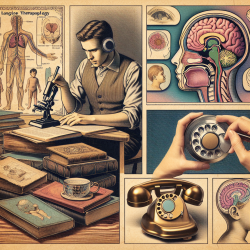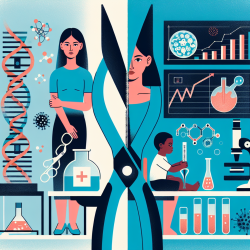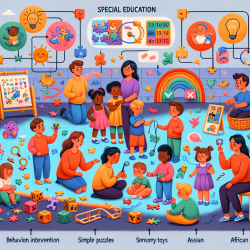Enhancing Practitioner Skills through Historical Insights on Idiocy
In the ever-evolving field of speech-language pathology, understanding the historical context of developmental disorders can provide valuable insights for modern practitioners. One such historical piece, "On Idiocy, Especially in Its Physical Aspects" by Dr. W. W. Ireland, published in the Edinburgh Medical Journal in 1874, offers a foundational perspective on idiocy, a term historically used to describe intellectual disabilities.
While the language and understanding of intellectual disabilities have evolved significantly since the 19th century, revisiting such foundational works can inspire practitioners to reflect on the progress made and identify areas for further research and development. This blog post will explore key insights from Ireland's work and suggest ways practitioners can incorporate these historical perspectives into their practice.
Key Insights from Ireland's Work
Dr. Ireland's article emphasizes the physical aspects of idiocy, which, in contemporary terms, relates to understanding the physiological and neurological underpinnings of intellectual disabilities. Here are some key takeaways:
- Physical Observations: Ireland's detailed observations of physical characteristics associated with idiocy highlight the importance of thorough physical assessments in diagnosing and understanding intellectual disabilities.
- Holistic Approach: The article underscores the need for a holistic approach, considering both physical and cognitive aspects, which aligns with modern practices that advocate for comprehensive assessments.
- Evolution of Terminology: Reflecting on the terminology used in the past can help practitioners appreciate the evolution of language in the field and the importance of using respectful and accurate terms today.
Implementing Historical Insights in Modern Practice
Practitioners can enhance their skills by integrating historical insights with contemporary research and practices. Here are some strategies:
- Continued Education: Engage in ongoing education about the history of intellectual disabilities to better understand the roots of current practices and the rationale behind them.
- Interdisciplinary Collaboration: Work with professionals from various disciplines to gain a comprehensive understanding of intellectual disabilities, similar to the holistic approach advocated by Ireland.
- Research and Reflection: Encourage further research into historical texts to identify areas where past insights can inform current practices and inspire new lines of inquiry.
By reflecting on historical perspectives and integrating them with modern practices, practitioners can enhance their understanding and improve outcomes for children with intellectual disabilities. This approach not only honors the history of the field but also ensures that practitioners are well-equipped to provide the best possible care.
To read the original research paper, please follow this link: On Idiocy, Especially in Its Physical Aspects.










